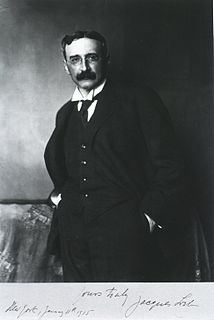A Quote by Stuart L. Pimm
The text [The Skeptical Environmentalist] employs the strategy of those who, for example, argue ...that Jews weren't singled out by the Nazis for extermination.
Quote Topics
Related Quotes
I was all for setting up a separate Jewish state in Madagascar or Palestine or someplace, but not to exterminate them. Besides, by exterminating 4 million Jews - they say 5 or 6 million at this trial, but that is all propaganda, I am sure it wasn't more than 4.5 million - they have made martyrs out of those Jews. For example, because of the extermination of these Jews, anti-Semitism has been set back many years in certain foreign countries where it had been making good progress.
Not only did waging war against Hitler fail to save the Jews, it may be that the war itself brought on the Final Solution of genocide. This is not to remove the responsibility from Hitler and the Nazis, but there is much evidence that Germany's anti-Semitic actions, cruel as they were, would not have turned to mass murder were it not for the psychic distortions of war, acting on already distorted minds. Hitler's early aim was forced emigration, not extermination, but the frenzy of it created an atmosphere in which the policy turned to genocide.




































